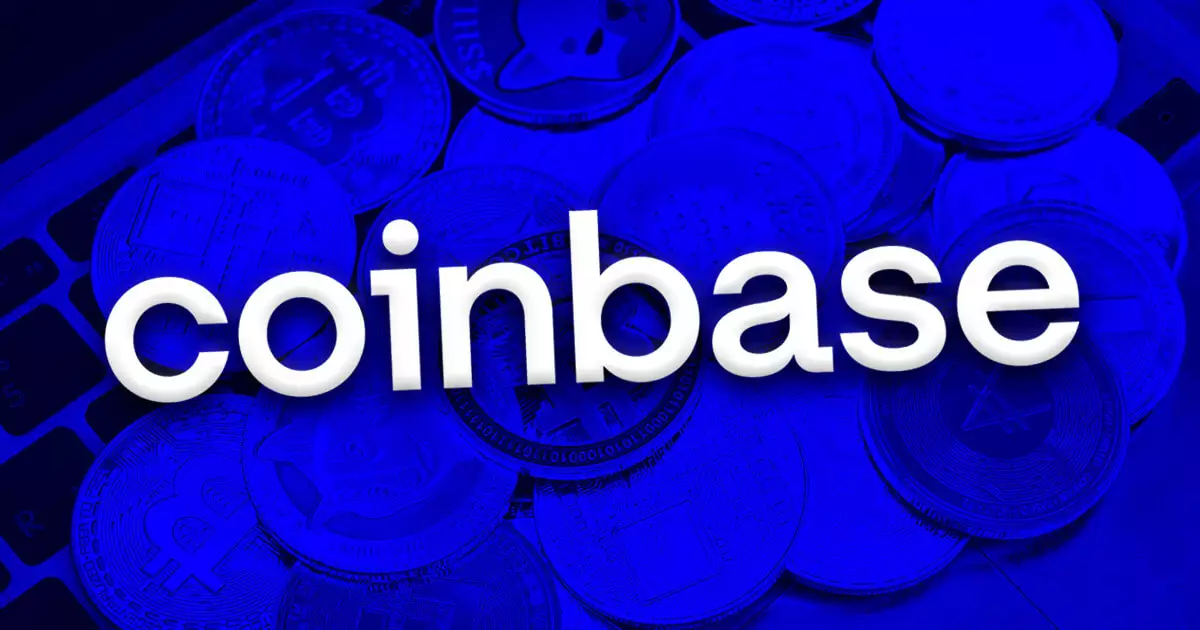In the landscape of digital currencies, legal entanglements are becoming increasingly common. The recent dispute between Coinbase, a leading cryptocurrency exchange, and BiT Global over the proposed delisting of Wrapped Bitcoin (WBTC) serves as a telling illustration of this trend. Coinbase has asserted that the lawsuit initiated by BiT Global is without merit and has moved to challenge its request for a temporary restraining order (TRO). This case not only highlights the complexities of regulatory compliance in the cryptocurrency industry but also raises questions regarding corporate responsibility and consumer protection in an evolving market.
Coinbase’s decision to proceed with the delisting of WBTC stems from a series of internal assessments focused on potential risks associated with the token, particularly those linked to Justin Sun, the prominent founder of the TRON blockchain. Paul Grewal, Coinbase’s chief legal officer, characterized the lawsuit from BiT as “bogus,” suggesting that it lacks a solid foundation and undermines the platform’s standards. In its court filings, Coinbase made it clear that its choice to delist was driven by a need to uphold its commitment to user safety and platform integrity.
The exchange’s decision was further justified by highlighting Sun’s controversial reputation, which has been marred by allegations of fraudulent practices and market manipulation. Furthermore, Coinbase indicated that BiT Global’s lack of transparency around the ownership of WBTC reserves intensified its apprehensions. The absence of clarity surrounding who truly controls these assets posed what Coinbase deemed an “unacceptable risk” for its clientele.
On the other side of the equation, BiT Global has accused Coinbase of acting in a manner that is detrimental to the wider cryptocurrency community. The firm claims that the delisting is an attempt to promote cbBTC, a competing asset, arguing that the move could destabilize consumer trust in WBTC. BiT’s legal team argues that this action is not just a business decision but one that could jeopardize the reputation of WBTC, suggesting it sends a message to the digital asset community that it is inherently less trustworthy than other tokens on the market.
Moreover, the plaintiff has framed its case within the context of California’s Unfair Competition Law, positing that the negative implications of the delisting could extend far beyond financial repercussions, as it may limit access for users and erode the legitimacy of WBTC in the eyes of the public.
Coinbase has responded robustly to BiT’s claims, pointing out that only a small fraction—less than 1%—of WBTC transactions occur on its platform. The exchange argues that the steady decline in WBTC circulation, attributed to Sun’s involvement, is evidence of the market’s waning confidence in the token, independent of Coinbase’s actions. This argument hints at a more significant trend where market sentiment about specific cryptocurrencies can shift dramatically, driven by news and perceptions tied to key individuals in the crypto space.
Importantly, Coinbase reassured stakeholders that users still have numerous other options to trade WBTC. This fact undermines BiT’s assertion regarding widespread harm within the digital asset space. Additionally, Coinbase highlighted its commitment to providing a secure platform, noting that delisting tokens has been a regular part of its effort to maintain safety and integrity for its customers.
This dispute not only reflects the challenges faced by cryptocurrency exchanges in maintaining compliance and consumer trust but also underscores the broader scrutiny surrounding figures like Justin Sun within the crypto landscape. The mounting legal pressures, including investigations by regulatory bodies like the SEC, bring to light concerns about the influence of controversial figures in an industry often criticized for its lack of transparency.
The future of WBTC and its standing in the cryptocurrency marketplace may hinge on the upcoming court hearing set for December 18. Should the court side with BiT Global, the delisting process could face a temporary halt. Nevertheless, regardless of the court’s decision, the case reveals essential dynamics between exchanges and cryptocurrency projects and raises pivotal questions regarding accountability and consumer confidence in a fast-evolving financial landscape.
The Coinbase-BiT Global legal dispute signifies a burgeoning intersection of corporate governance, ethical standards, and regulatory scrutiny in the cryptocurrency sector. As the hearing date approaches, the outcome may have lasting implications for how digital assets are managed, perceived, and regulated in the marketplace. This case serves as a reminder of the critical balance that must be struck between innovation and responsibility, particularly in an industry still finding its footing in the global economy.

